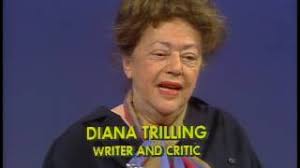30. Johannes Lichtman
“I started the dryer and tried to think of something that
I enjoyed more when it was happening than when it was over.” -Johannes Lichtman
Probably the single most delicious
thing I’ve ever eaten is the four-cheese mac at a certain macaroni and cheese spot
in the East Village. You can say what you want about the phenomenon of single-item
restaurants that try to elevate junk foods—and I’ve probably said all those
things—but this place does it right. While I can’t speak to their fancier, more
involved offerings (masala, Philly cheesesteak), the relatively plain
four-cheese option keeps it simple: crunchy and breadcrumby up top, gooey and
tangy underneath. For a while, any time I went below 14th Street,
I’d have to pop in; I’d grab a copy of the free (and much missed) L Magazine
from the orange box out front and read the film capsule reviews while I spooned
the mac out of its skillet and into my mouth as fast as I possibly could.
And as I said, the mac was
delicious, almost unbelievably so, but I’m not sure I can say I actually
enjoyed eating it. Even as the specific flavor clearly provided some kind of
pleasure, and even as the L
distracted somewhat from my compulsiveness, I approached the task at hand with
such singlemindedness that most of this pleasure was purely theoretical,
something to be appreciated more in retrospect than while I was supposed to be
experiencing it. And even then the enjoyment was minimal. As soon as I would
finish the skillet, I would, despite the massive amount of food I just ate,
want more. Then a few minutes later, my stomach would hurt and I’d feel tired.
For all the possibilities of gratification that the mac and cheese offered, I
was able to experience very, very few.
And this generally seems to be my
attitude toward food: if it’s something I really like, which generally means
that it’s something unhealthy, I’ll eat it as quickly as possible, ensuring
both mental dissatisfaction and bodily malnourishment and sometimes discomfort.
But this approach isn’t limited to eating; it applies to most of my experience
of life. A good deal of this is a certain self-consciousness on my part—I can’t
simply enjoy a thing but have to properly contextualize it, to evaluate it as a
positive or negative experience that slots into and affects my larger
existence. Whether it’s engaging in conversation, going for a walk, or reading
a book, it’s very rare that I’m not looking forward to the task being over so I
can already have experienced it. But unlike Johannes Lichtman’s character who has
similar difficulty enjoying things while they happen, I don’t get much pleasure
out of reflecting on these activities afterward. I’m simply glad that they’re
over and I can bank them safely away in my store of experience, or in the case
of bad eating, forget about them entirely. Then, satisfied, if not enlightened,
an anxiety lifts and I can relax. Usually, tired from the task of living, I
drift off and fall asleep.



Comments
Post a Comment